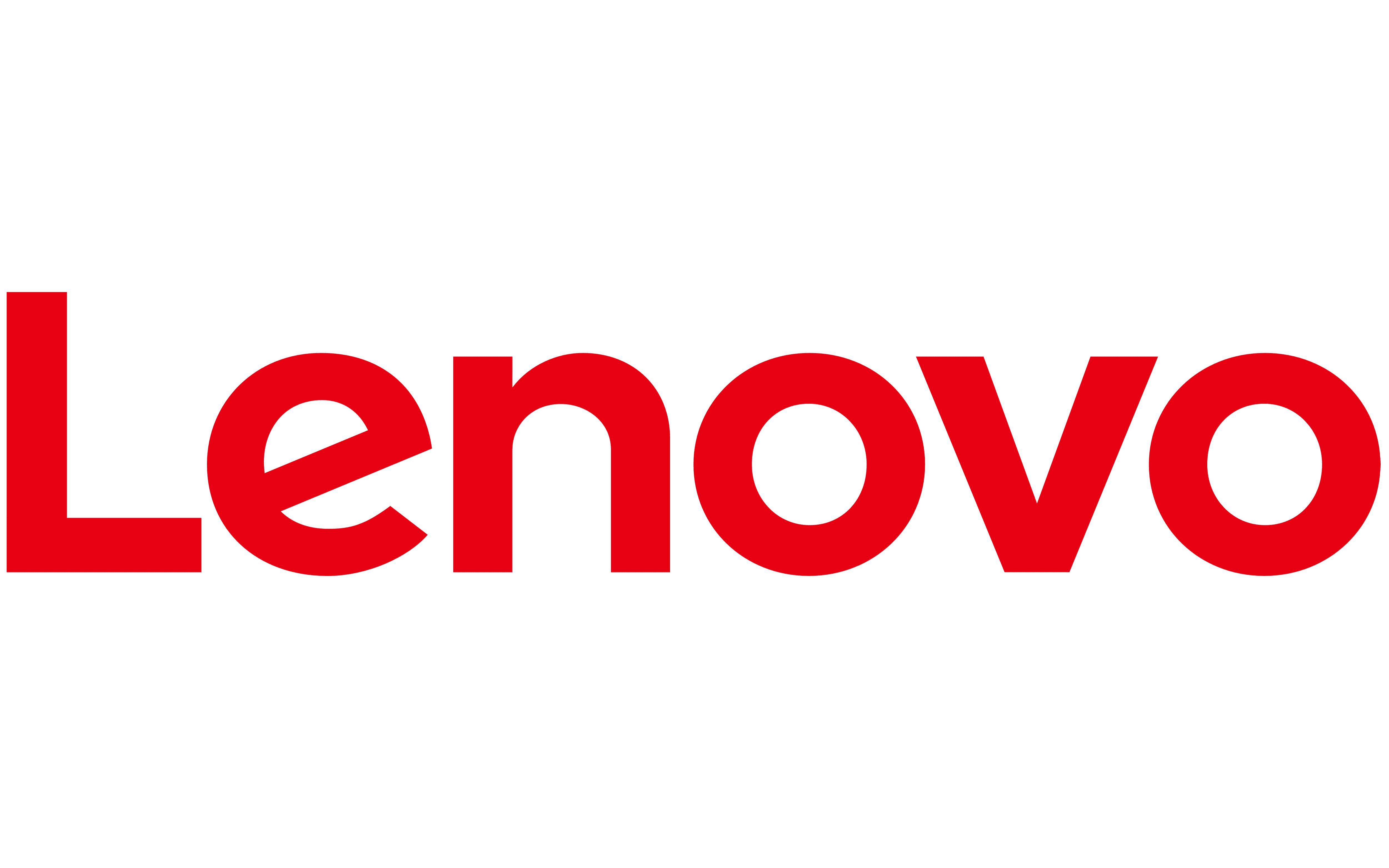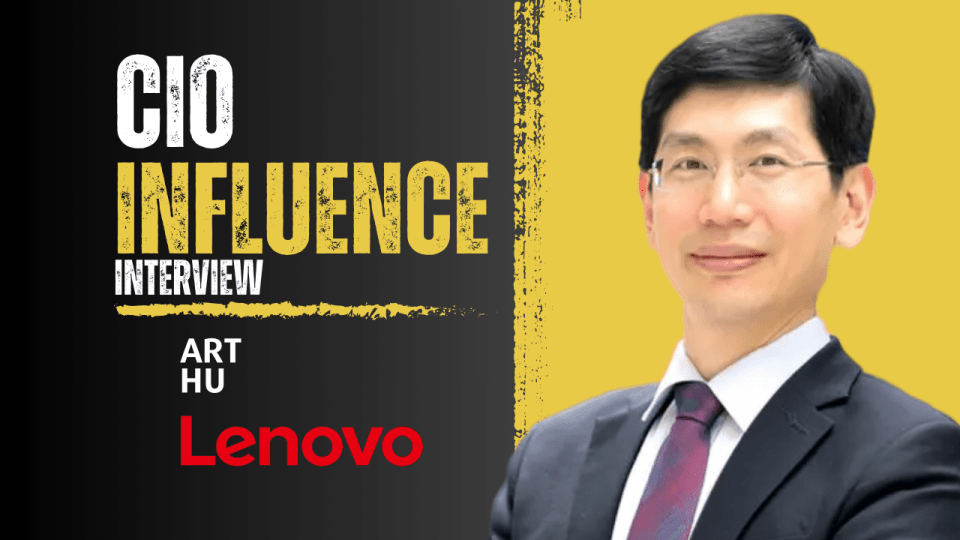“The Customer Journey Plays a Decisive Role in Sustainable Customer Retention, and Requires the Use of Data.”
Hi Art, please tell us about your vision of working with AI and machine learning (AI/ML) technologies at Lenovo.
2023 may have been the year when AI entered the popular lexicon, but 2024 is shaping up to be a key year for AI advancement, adoption, and expansion. More and more businesses are expected to focus on understanding the investment necessary to integrate AI into their operations and identifying areas where AI tools are most valuable.
Lenovo, a leader in IT hardware, is seeing more and more requests for support services around AI and has begun shifting their product offerings towards more SaaS ecosystems that are dedicated to making “AI available for All.”
As Lenovo’s SVP, Global CIO and Services & Solutions Group CTO, I have been working with our leaders on new solutions to support AI adoption both inside the company and among its client base. I foresee AI and Machine Learning (AI ML) would continue to remain key trends in the enterprise in 2024.
How would AI solutions influence computing capabilities in 2024?
Generative AI will unleash the possibilities of ambient computing .
Advancements in Generative AI will drive ambient computing as devices become more prevalent and capable, and form factors become more flexible. Authorized agents that can take actions from the results of multi-layered interactions could unlock new ways of doing both consumer and business transactions.
Our world and day-to-day items that we use and interact with will become a lot more capable, and perhaps a new model will emerge where Generative AI is the top-level layer through which we interact with underlying systems based on intent.
Top Story:
CIO Influence Interview with Anand Oswal, SVP and GM of Network Security at Palo Alto Networks
How should organizations mitigate AI risks?
Businesses will focus on creating guardrails to mitigate AI risks.
Companies deploying AI will become more cognizant about the risks and underlying nature of AI and we will see more businesses taking targeted actions to mitigate this. For example, new patterns such as Retrieval Augmented Generation can help LLMs generate results from authoritative sources. Additional techniques such as ensuring the quality and fidelity of training data and keeping a human in the loop for both training (reinforcement learning based on human feedback), and inference for the most sensitive scenarios are ways of balancing the augmented intelligence that Generative AI provides.
CIO Influence Predictions Series 2024: Major Market Trends and Disruptions CIOs Must Be Ready for in 2024
We will also see an increase in robust governance policies, processes, and tools including testing and validation for AI-generated content, and embedding monitoring throughout the entire system.
Having a clear AI policy that lays out the criteria to determine what is ethical, responsible, and inclusive will guide the use of AI.
This coupled with education so that teams working in this space can learn the skills necessary to implement the guidance, will be the cornerstone from which we will see businesses executing tangible AI plans.
Why AI projects fail? How can business leaders prevent strategic AI failures in 2024?
We have identified drivers of strategic AI failures.
The difference between organizations that succeed deriving value out of AI and those that don’t is that they fully grasp the new technology paradigm change in transitioning from analytical AI to generative AI for the purposes of security and compliance implications. They understand that data can show up in unexpected places depending on how it’s used in training a model.
While they’re boldly making forays into experimentation, they have a clear plan to progress from pilots and proofs of concepts into actual launch, deployment, and scaling up. They’re aligned with how AI can support the company’s broader goals and organizational strategy, which reduces internal resistance and poor adoption rates.
Recommended:
CIO Influence Interview with Karl Mattson, Field CISO at Noname Security
Another area that successful businesses will prioritize is ensuring that AI models are fed high-quality, well-governed data, without which AI projects can be easily derailed. AI systems require accurate, diverse, and well-maintained data to function effectively. Poor data quality can lead to inaccurate or unreliable AI outputs.
Lastly, implementing AI often requires significant changes in workflows and processes. Neglecting change management aspects such as employee training, communication, and support can result in resistance to the new technology and failure to realize its full potential.
Read More: ITechnology Interview with Charles Fan, Co-Founder at MemVerge
Thank you, Art! That was fun and we hope to see you back on CIO Influence soon.
[To participate in our interview series, please write to us at sghosh@martechseries.com]
Art is an SVP, CIO & CTO, Services & Solutions Group at Lenovo.
As Lenovo’s Global CIO, Mr. Hu leads the enterprise-wide IT organization that is driving the technology-enabled transformation of Lenovo. Under his direction, Lenovo’s IT team has emerged as a strategic partner to the business groups, focusing on innovation, business value, and customer experience.
Since joining Lenovo in 2009, Mr. Hu has held several executive and operational leadership roles in the company and is a member of the Lenovo Executive Committee.
 Lenovo is a US$62 billion revenue global technology powerhouse, ranked #217 in the Fortune Global 500, employing 77,000 people around the world, and serving millions of customers every day in 180 markets.
Lenovo is a US$62 billion revenue global technology powerhouse, ranked #217 in the Fortune Global 500, employing 77,000 people around the world, and serving millions of customers every day in 180 markets.
Focused on a bold vision to deliver Smarter Technology for All, Lenovo has built on its success as the world’s largest PC company by further expanding into growth areas that fuel the advancement of ‘New IT’ technologies (client, edge, cloud, network, and intelligence) including server, storage, mobile, software, solutions, and services. This transformation together with Lenovo’s world-changing innovation is building a more inclusive, trustworthy, and smarter future for everyone, everywhere.


